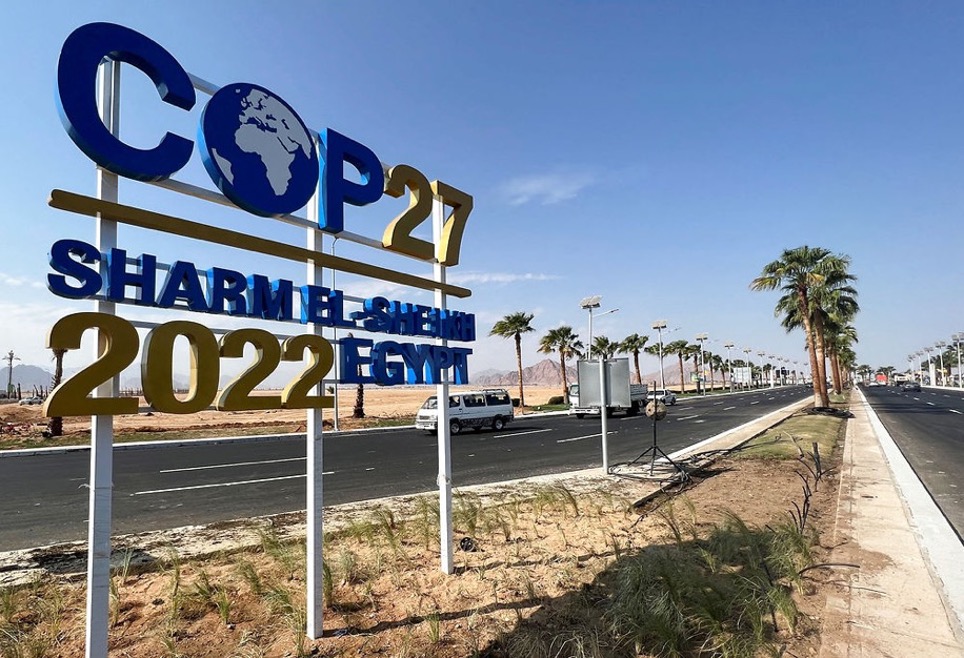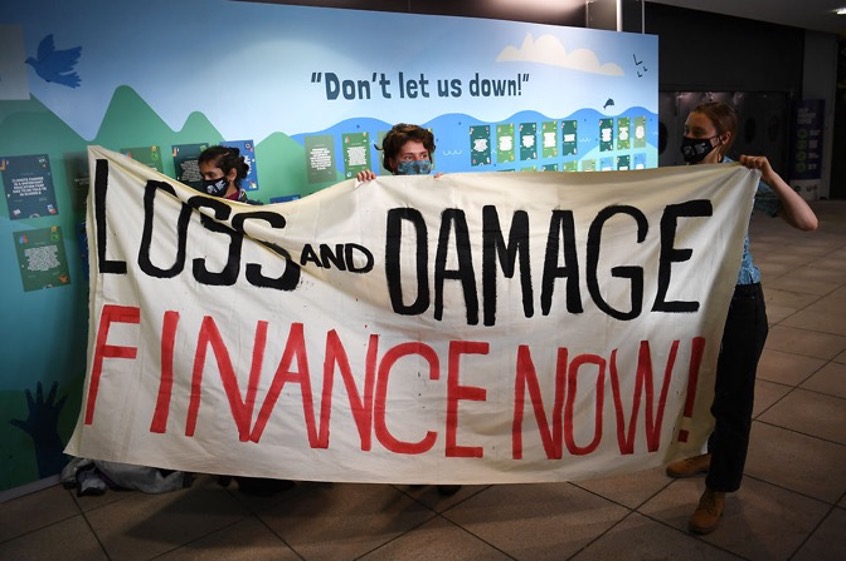
In just four days COP27 will kick off in Sharm El-Sheikh, Egypt. Climate is on the topic as always, but this COP differs from the previous ones. It will be the COP of the vulnerable, meaning that the countries dealing with climate impacts have stepped up their demands regarding financial funds. However, despite a fund towards loss and damage has now been an official agenda item Member of the European Parliament (MEP) Michael Bloss announces, “The EU side is not really working hard to make it a success”.
By Marie Louise Gimm
Going into COP27 hope is spread throughout the world’s developing countries. It is time to face reality and make concrete legislation on how to financially support climate vulnerable countries. At least this is what the developing countries have been fighting for ahead of COP27. At a press briefing on the matter MEP Michael Bloss, however, is very direct stating that COP27 will be one big failure – criticizing both the EU and the Executive Vice-President for the European Green Deal.
“We are the climate leaders, so if the European Union says that they will not do anything about it, of course no one else will do anything about it. I think this a very bad example of the European Union and of Frans Timmermans. Keeping in mind that we could do more” he says.
The EU wants to engage in dialogue, and they want to understand the needs of the climate impacted countries. But they will not acknowledge the liability of the industrialized countries, Michael Bloss continues.
Ines Benomar, who is a researcher in Climate Diplomacy and Risk and Resilience at E3G, agrees on one fact. One of the major problems lies with the EU, because they are still very big blockers of loss and damage. And they are allowed according to the Paris Agreement.

“The whole question around loss and damage stands from responsibility and responsibility towards climate change. We all know which countries are the most responsible and I think, given into the loss and damage debate, it would be sort of acknowledging that the responsibility lies there and only there” she says.
But saying COP27 will be a failure, Ines Benomar does not agree on. In the past year there has been an insane amount of progress, she says. The loss and damage being an official agenda item is something to be celebrated, and something that should have a positive outlook.
“If you are going into COP27 saying that it will be a failure, it pre-disposes the final outcome of it and that gives a very negative outlook to the whole COP process – and undermines it as well” she adds.
However, just like MEP Michael Bloss, she does not expect the EU to make any pledges on a loss and damage fund either, but to say that equals failure is wrong.
“The EU has made it pretty clear that they won’t agree on it at COP27, but that doesn’t mean there can’t be a compromise on something else in the meantime or until COP28” she claims.
A loss and damage financial facility is the end goal, but other measures can be used in the meantime.

Denmark as a leading example
One of the temporary solutions Ines Benomar suggests in helping developing countries is through bilateral pledges – meaning money transferred directly from an industrialized country to a developing country.
“In this way it is much faster to get the funds,” she says.
Because facing reality a system for loss and damage takes years to set up, and the EU argues that funds won’t reach communities in need as soon as possible. Despite that Ines Benomar thinks the EU uses this type of argument to block the conversation, it is not a fraud argument she admits.
But there is hope. Scotland and Belgium offered €3,4m in total at COP26 last year. And in September Denmark’s Ministry of Foreign Affairs offered €13,5m towards a new loss and damage funding as part of its 2022 Finance Act – being the first federal government to make a dedicated pledge (theguardian).
Christian Juhl, member of the Danish Parliament, is proud of the accomplishment even though he knows it is far from enough money.
“We hope that this initiative can help put it into action, so we stop just talking about it. That was at least our intention. And to encourage others to do the same or do something similar” he says.
“We must all keep real and face reality now. And that means the current reality that shows that a lot of money is needed to help developing countries in dealing with the effects of climate change. Those countries that have the main responsibility for climate change must act” he follows up by saying.
Ines Benomar agrees this is a good step in the right direction. And she thinks it will help break the taboo especially within the European Union – that climate impact is a reality and financial funds are necessary.
“The impact it has within the EU is definitely strong because there needs to be more movement and there needs to be more progress from member states” she says.
But to which extent it will lead to other countries to follow, she is not so sure.
An appeal to the EU from Pakistan
Another suggestion from Ines Benomar is restructuring the humanitarian system. Because the way climate impact has been dealt with the most is through humanitarian aid. But the issue with this is it only lasts for a short amount of time – and it is not specifically dealing with climate impact, but all sorts of world disasters.
“Funds can be taken away from a region that’s dealing with climate impact very quickly, if there is another region in the world that’s having a war or something like that, where more money needs to go into it more quickly” Ines Benomar says.
With a loss and damage facility it would be more constant and supervised, and it will only go towards loss and damage issues.
Mashooque Birahmni from the Sindh province of Pakistan has experienced the help from humanitarian organizations firsthand. Around 33 million people in his home country have been affected by this year’s heavy monsoon rains (unicef). Including himself.
“Government, local and international humanitarian organizations are working hard to meet the needs of the flood-affected people, but the scale of the damage is so widespread that still thousands of families are waiting for relief. That includes food, temporary shelter, medical services, drinking water, hygienic items, warm clothes etc.” he says.
Although Mashooque Birahmni is very thankful to global communities for supporting Pakistan, he thinks the support is too little and too late. Pakistan has suffered a loss worth of $30 billion US dollars and only a few million dollars have been extended (reuters).
Now Mashooque Birahmni has one major appeal to the EU:
“The recent floods caused by climate change have pushed the people of Pakistan on the edges. At a time when each penny counts it is disappointing to note that the EU and developed countries have apprehensions in helping the people of the Global South. I would appeal to the EU to allocate special funds for the people of developing countries who are facing the ultimate challenges of climate change. Because this is a global fight” he declares.
The global community, in particular the EU and US, needs to show magnanimity by extending timely required support for rehabilitation of lives and livelihoods, he continues.
Mashooque Birahmni has just one more statement before finishing, and he wants the EU to remember.
“Today it is us for sure, but tomorrow it will be you”.

